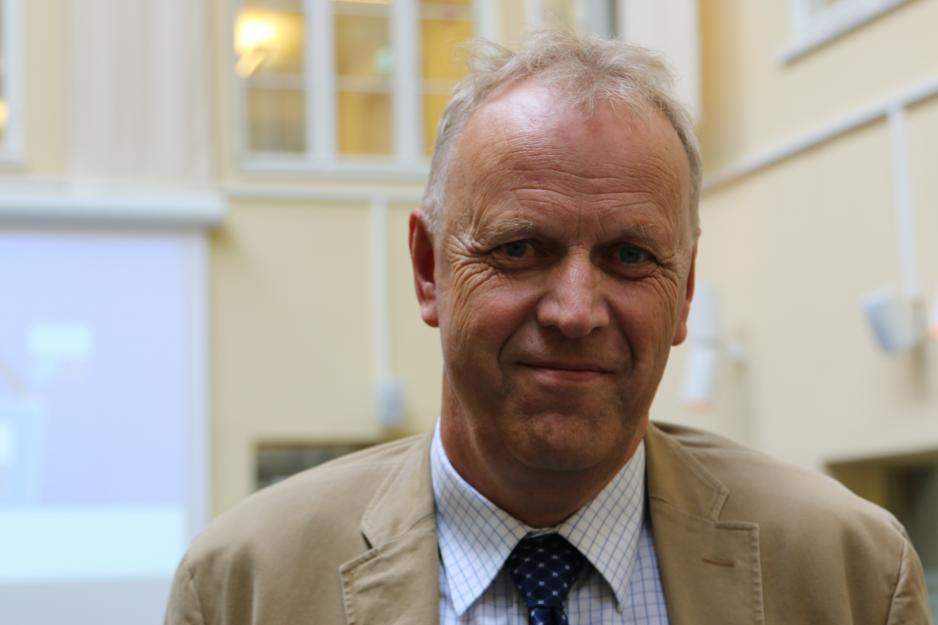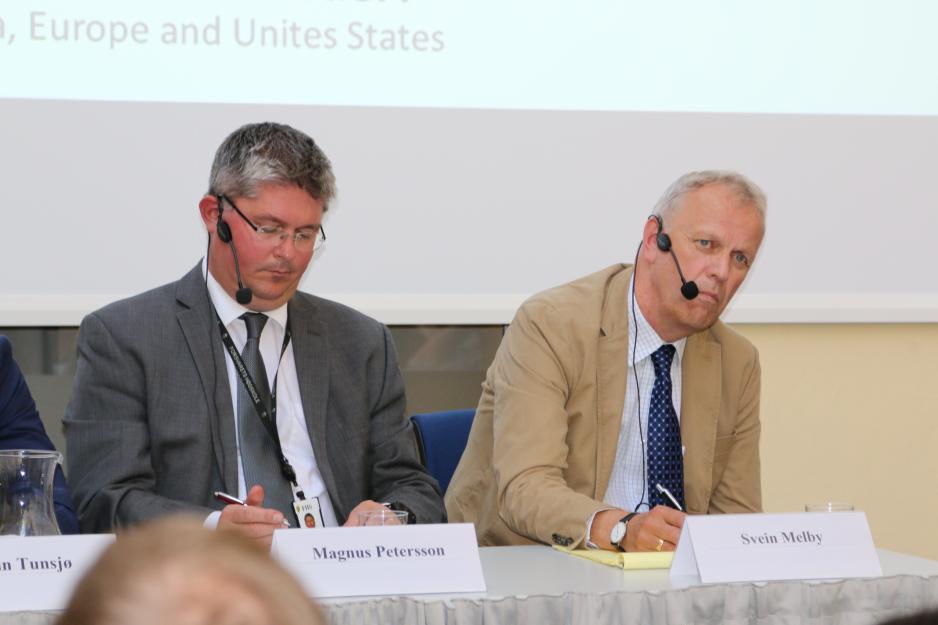Norwegian Defence Expert: - The USA Lacks Will to Lead

Oslo: - The USA still holds the capacity to dominate international politics, however, it lacks the will, says Senior Researcher Svein Melby at the Norwegian Institute for Defence Studies. That does not only present challenges for international top politics, it also challenges the shaping of Norwegian foreign and security policy.
The US's self-image as well as its traditional foreign policy is changing. Where former administrations have held the view that the USA holds the main responsibility for maintaining the liberal world order, Trump's administration holds a quite different view.
- You say the US's will to lead is failing. What does that mean for us?
- We have in a sense based Norwegian foreign and security policy on the precondition that the USA is the uncontested, dominant and leading state in international politics, and also on the fact that the USA has not only wanted to keep that role, but on the its emphasizing collective instruments such as NATO.
Norway has had a close relationship with the USA for years, and Norwegian authorities keep referring to the USA as Norway's most important ally. The relationship between the two countries has received wide attention in countless security policy briefings.
- That has been our connection; that is where we have started from. We have formulated Norwegian policies based on that precondition, Melby says.
Creates insecurity and doubt
As it is today, he says, the USA no longer has the internal preconditions for, nor any desire to, maintaining such a lead role. It is also obvious, Melby argues, that today's political administration in Washington D.C. places less value on the significance of collective tools such as NATO.
- It is not that they want the USA to leave the Alliance, but they have created an insecurity around what the US's role is, the Senior Researcher says.
Melby refers to the American President's infamous trip to Poland earlier this year, where Trump reassured the world that the USA stands by NATO's Article 5, which states that "an attack on one member state shall be considered an attack on all members".
- Even though the American Vice President has been in the Baltic countries and made the same statement, this is nevertheless a thing the American administration would not normally need to say. However, when they have to fly around the world and make reassurances, that can be ascribed to the doubt that has arisen, he analyses.
Norway must investigate options
- That is why I believe it would be wise if we started making reports and studies where we were forced to make use of other preconditions other than only this 'NATO preconditions' about the US's lead role in the Alliance. I have not analysed what those other alternatives should be, as Norwegian security policy is not my field. I am just merely saying that the USA is no longer the dominant player in international relations as we have been used to and based our policies on, the Senior Researcher clarifies.
Even though the issue has become preeminent only during the Trump administration, this is nevertheless a tendency that goes further back in time, Melby says. He is an expert on American security policy and its relationship with NATO, Europe and Russia.
- Of course Trump, in his way, represents a problem. However, these tendencies started even under the Obama administration, even though he still did it within the collective framework in that collective arrangements received insignificant increases, the Senior Researcher says.
The Trump Administration is skeptical
- We now have an administration that is sincerely skeptical to the whole arrangement that was introduced following WW2. We find the explanation in the USA itself, with the internal political and economic development in the country. There is a division and polarization that makes it difficult to act efficiently abroad as the political foundation for decisions at home is failing, he says.
- Do we who live in the High North, with Russia as one of our closest neighbours, have reason to worry about the USA's credibility as a partner and an ally?
- Of course we do. We are more dependent on the bilateral relationship with the USA than many others, not just through NATO but also in the US having a direct interest in the areas around us, and in balancing Russia also on a regional basis, so that we have a balanced superpower system around our bilateral relationship with the Russians too. That may be put to the test now, Melby argues.
Better than Trump holding a wild card?
There was a war of words as late as last week between US President Donald Trump and Russia's Foreign Minister Dmitry Medvedev, following the USA's introducing new sanctions towards Russia – and Medvedev declared open trade war.
The fact that the US Congress intervenes in foreign policy areas and imposes a policy on the Administration that the latter does not really want to impose, which was the case with the new American sanctions against Russia, that is specific to the Trump administration, Melby says.
- It is hard to tell how this will turn out in a Norwegian context. The fact that the Congress intervenes and more or less places the administration under administration when it comes to shaping policies towards Russia is no doubt arguable. It may even end up securing Norwegian interests better than if Trump had been given a carte blanche.
The old world order appears to crack
- The Arctic Council does not carry any foreign policy function, however, do you think cooperation through the AC will grow more important in the future, given the rather poor state of the US – Russia relationship?
- Yes, I should think so. In times of insecurity, all institutions that continue what they are doing on a day-to-day basis will grow more significant. Things are moving both on the Russian and the American side, and we are in a turbulent phase right now. We should not exaggerate this, of course; however, the whole situation is marked by insecurity. We do not know how the Russians will proceed politically speaking, nor what will happen internally in Russia or how they will act externally. What has been firm for a long time is now no longer that, and that always represents a greater potential for surprising things to happen, Melby argues.
- Where does Trump really want to go?
The Senor Researcher has been affiliated a.o. with the Norwegian Institute of International Affairs (NUPI), the Norwegian Ministry of Defence and the Center for International Security Studies at the University of Maryland, USA.
At the other day, as he was one of the keynote speakers at a seminar at the Norwegian Institute of Defence Studies (IFS) in Oslo called 'A new world order? Asia, Europe and the United States', the room was packed.
Before everyone, from academics to people from the Norwegian Ministry of Foreign Affairs and the Norwegian Defence, Melby argued that defining Donald Trump's foreign policy is a rather hard exercise.
- Those who try will soon find out that it's nearly a 'mission impossible' task. Donald Trump does not operate based on an ideological political base, nor based on a political administration. He operates only based on himself.
Benjamin Schreer, a German Professor at the Macquire University in Sydney, Australia sums it up like this:
- For the first time in a long time we cannot answer where and why we should follow the USA, and that is a vital question for a.o. the USA's allies. Let us hope that is just a temporary question.

